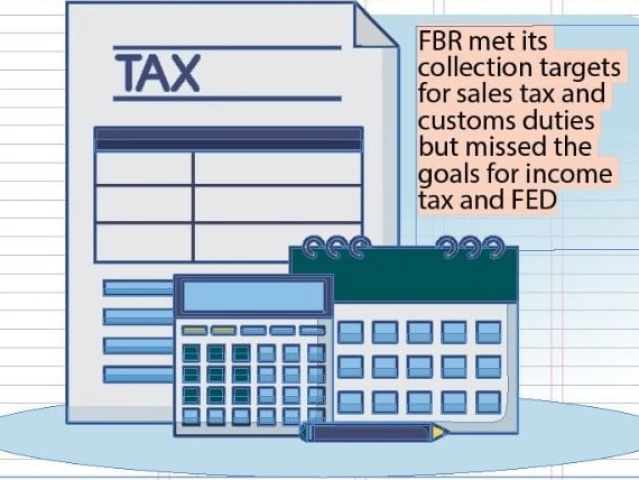The Federal Board of Revenue (FBR) has started a steady start to the financial year by reaching its first-month goal, collecting RS755 billion in revenue on the back of improved benefit in indirect taxes as both tax machines and dealers are waiting for clarity on several unresolved questions. The preliminary collection exceeded the monthly target of RS748 billion by around RS7 billion, according to figures prepared by the FBR headquarters on Thursday night. Compared to last year, the collection was RS96 billion or nearly 15%higher, which was a decent growth rate but was still at the pace required to meet the annual target. The government has set an RS14.13 trillion income target for the current financial year, which requires an increase of 20% compared to the previous year. FBR is dependent on improved enforcement measures and the recovery of taxes bound in litigation. Business has agitated against new legal powers that allow arrests on suspicion of turnover tax fraud. It has also opposed statutory provisions that allow the addition of half of all cash expenses over RS200,000 back to taxable income. Another contentious question is the implementation of tax inspectors in commercial premises that contradict the government’s claim for digital tracking of sales and production. Last week criticized business strongly the government’s attitude and objected to being labeled as "twenty" and "Mafias."
To solve business problems, the government formed a committee that recommended conciliatory measures for Prime Minister Shehbaz Sharif. These included raising the cash expenditure limit to RS2.5 million and establishing a complaint committee to tackle complaints about excessive monitoring of business premises. The FBR had promised to issue an explanatory note before July 24 to tackle the concerns of business, but it failed to comply with the deadline. FBR -President Rashid Langrial did not attend the office this week because of "Health causes." However, he continued to hold meetings practically and participated in a session at the Ministry of Finance with foreign diplomats. Dr. Hamid Ateeq Sarwar, FBR’s member of inland income operations, officially withdrew from the service last week, but still participates in office as the government moves to re -discharge him on a contractual basis. Dr. Sarwar continues to oversee Operations Wing regardless of his formal title. However, there is uncertainty in this regard, as the membership operations have been given to the member administration, which reportedly does not handle the operational tasks. Pakistan’s economy is experiencing slow growth due to stabilization policies implemented on the instructions of the International Monetary Fund (IMF). Despite this, FBR has managed to extract revenue from the system. Details show that FBR met its collection targets for VAT and customs, but missed the goals of income tax and federal excise duty. Tax authorities collected approx. RS300 billion in income tax, RS15 billion shortly after target. However, the collection was still RS16 billion, or 5.6%, higher than last year. One of the reasons for missing out on the goal was the big advance payments that were collected in June to help achieve the revised annual goal. The government has also suffered reduced income tax rates for employees. Collections of VAT reached the RS302 billion, which were RS12 billion higher than the target, and were RS46 billion or 18%, higher than the previous year. Federal excise collections amounted to RS46 billion, RS5 billion below target. The defect was attributed to high duty prices for various products, including drinks, which negatively affected business sales. Nevertheless, excise receipts were RS9 billion or a quarter higher than the year before. Customs collections rose to RS106 billion and exceeded the target of RS14 billion. The increase was partly due to the clearance of loads previously detained by importers in anticipation of reduced tasks. The collection was also RS25 billion or almost a third more than the last financial year. Customs income is directly bound to import quantities, which in turn depends on the availability of foreign currency. Imports are expected to speed up when the government gradually opens the economy of foreign competition by lowering the import duty.



